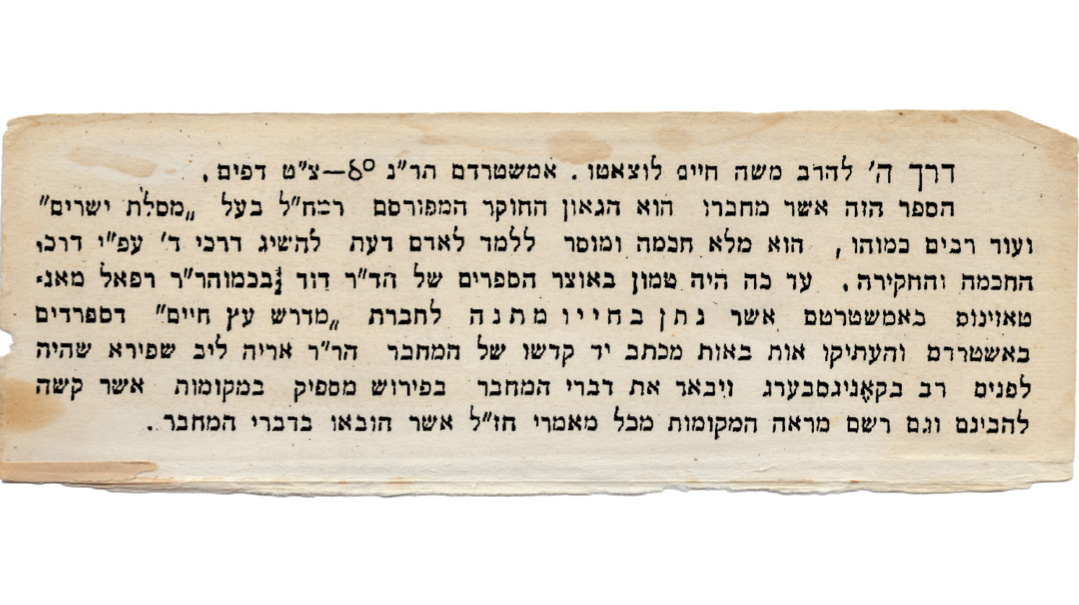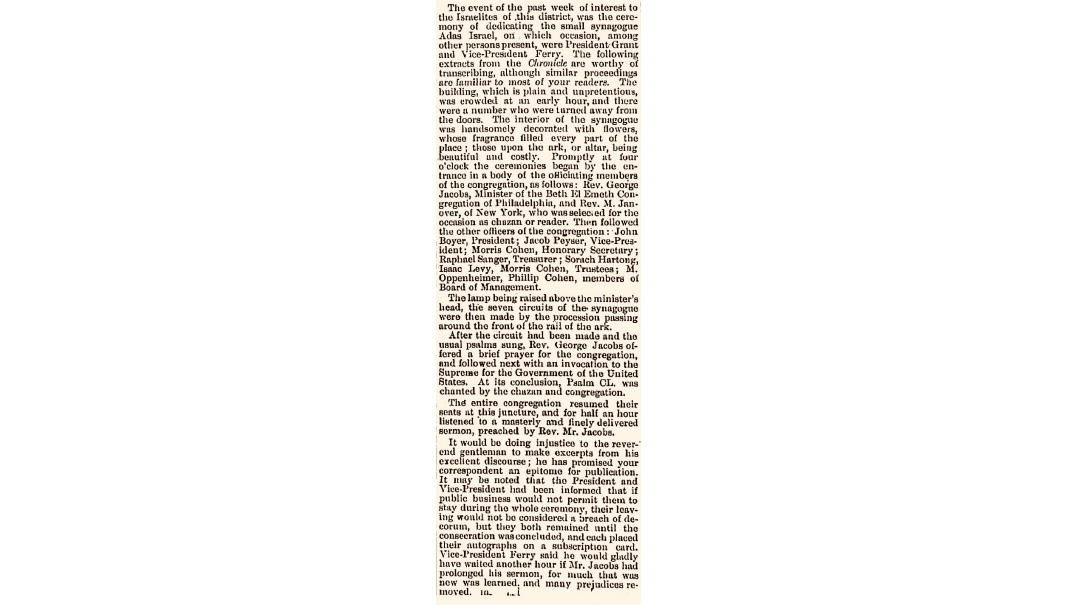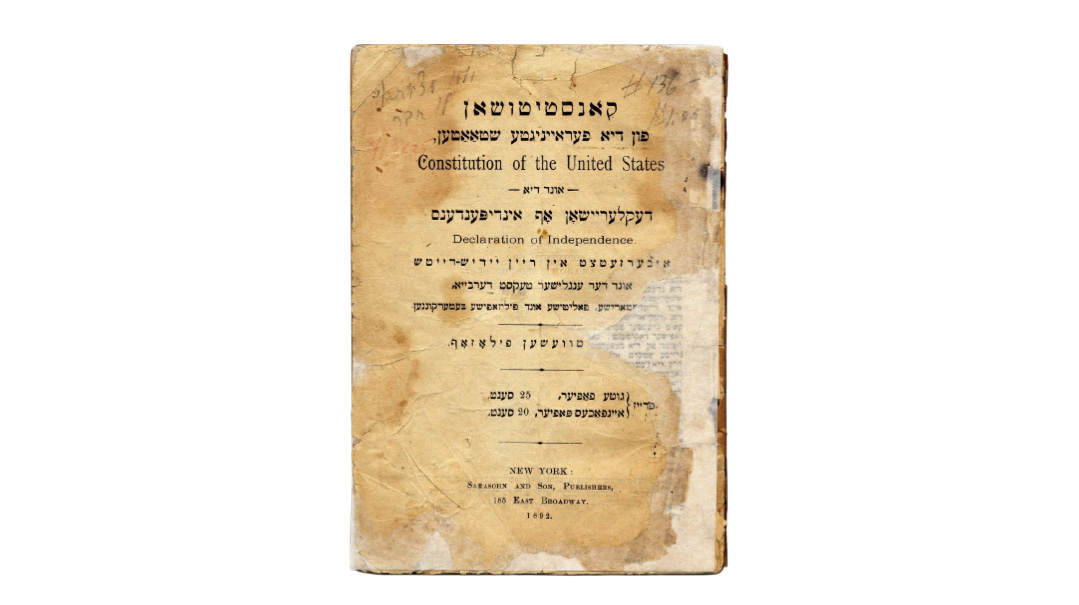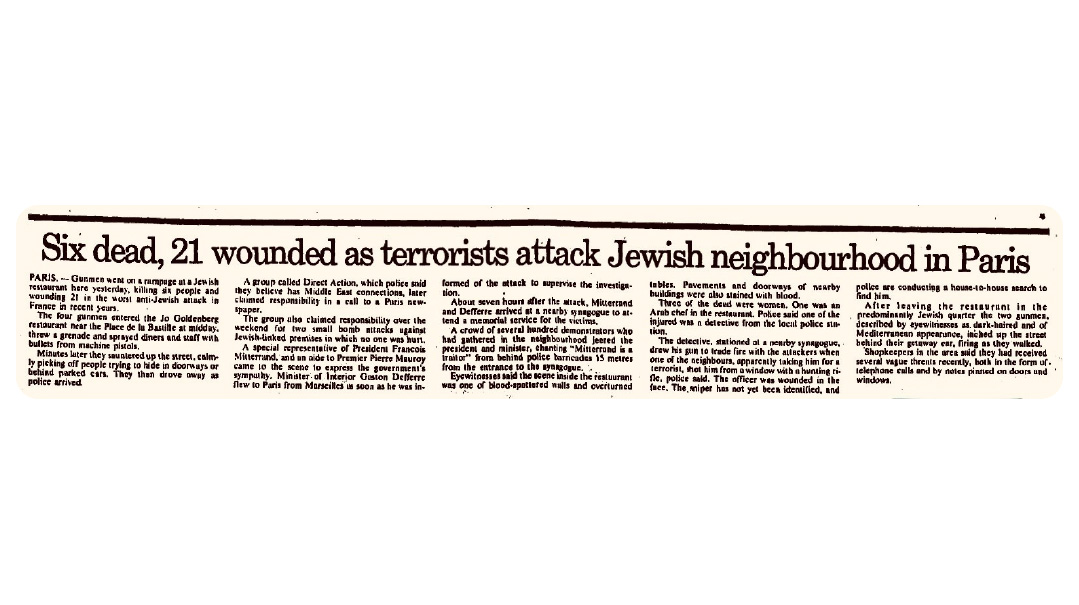Clean & Kosher
| July 4, 2023“Rokeach was the kosher person’s Edison”
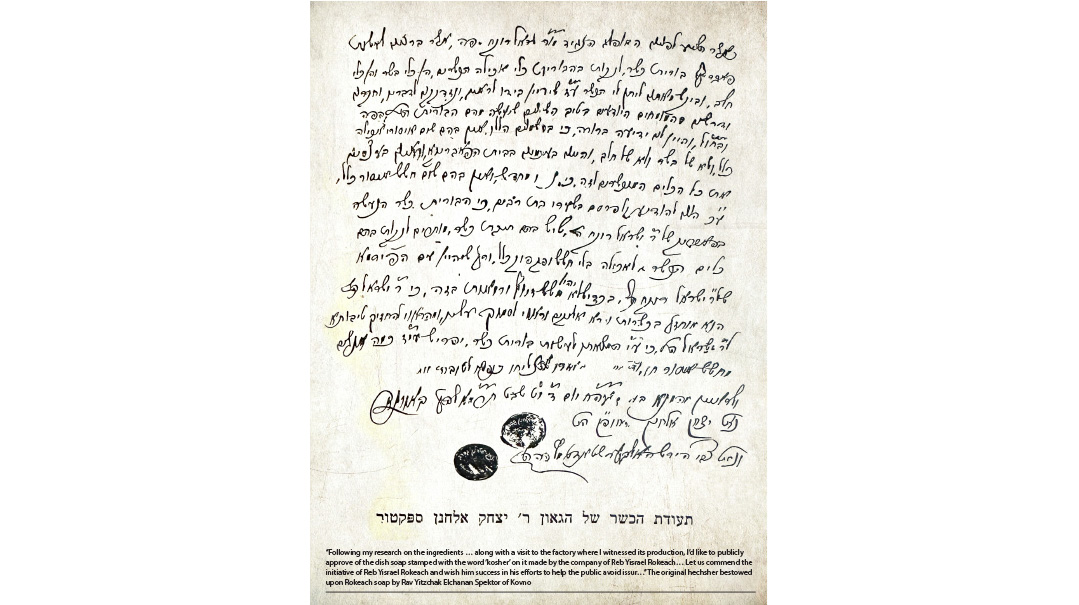
Title: Clean & Kosher
Location: Kovno, Russian Empire
Document: Kosher Certification from Rav Yitzchok Elchonon Spektor
Time: January 1881
“We entered a car where a chauffeur was seated at the wheel. Reb Boruch Ber, Reb Reuven, another man, Papa and I rode together… During the ride, I discovered that the other man riding with us, the owner of the car, was the well-known millionaire who owned the Rokeach factories. … ‘Mama, do you know who else is coming up? Mr. Rokeach, the very rich one. We rode in his car.’ I ran to our cupboard and pulled out the boxes of Rokeach’s dishwashing powder that were stored there and placed them in prominent places all over the kitchen. I hoped he would notice them as he passed through on the way to our dining room.”
—Ruchoma Shain, All for the Boss
Israel Rokeach (1841-1933) grew up in Volkovysk, Lithuania, moving to Kovno following his marriage. Rokeach was troubled by the trends of loosening halachic observance he was witness to in Kovno at this time, and he sensed both a business opportunity and a way to strengthen traditional norms. In lieu of lard, which was then the common base ingredient in commercial soap production, he pioneered using vegetable oil as a substitute.
In order to market his new kosher product, he approached the venerated rabbi of Kovno, Rav Yitzchok Elchonon Spektor, for his approval. After being reassured that the new soap would bear the Hebrew imprint “kosher,” Rav Yitzchok Elchonon endorsed it, and the Rokeach line of kosher products was launched.
Branching out from soap into other vegetable-oil-based products, his lucrative business flourished for a time, and he became renowned for his philanthropy. The 1880s saw an economic downturn in the Russian Empire, and Israel Rokeach joined the throngs of immigrants to the United States, arriving in New York in 1890. Unlike most immigrants, who were generally in their twenties, Rokeach now had to rebuild his business from scratch at the age of nearly 50.
At a tribute dinner held in honor of the 90-year-old entrepreneur in 1930, Der Forverts ran a feature on his life story.
“Rokeach was the kosher person’s Edison. Before opening their million-dollar factory in Brooklyn, Rokeach ran a kosher soap manufacturing plant out of a cellar on Market Street not long after arriving in 1890. The elder Israel Rokeach remains an interesting subject. Had he not become a wealthy manufacturer and remained a poor man, we’d still have written about him. Neither his orthodox practice nor his involvement with rabbinic leaders and synagogues kept him from embracing [business] opportunities in America, despite having arrived here as an older immigrant, already in his late forties. A naive type of synagogue Jew, he nonetheless built up a curious kosher factory here in treyf America. With his traditional head covering, side curls, and beard, he looks the very picture of an old world type. And yet, kosher or not, one must really struggle here in America to make a living. And he somehow succeeded at it through his ideas about kosher products.”
In addition to manufacturing kosher soap, I. Rokeach and Sons marketed over 60 products to the kosher consumer, including scouring powder, silver polish, cooking food products, shortening, soups, oils, honey, tea, borscht, gefilte fish, steel wool, canned fruit, and more.
Another pioneering venture was his kosher for Pesach line, which included jelly fruit slices. The revolutionary idea of not using schmaltz on Pesach was realized with a concoction of coconut, cottonseed oil, and onion under the label Nyafat.
Scores of institutions, communities, and individuals across the country were beneficiaries of his largesse. He established a special fund to build housing for Torah-observant Jews in Palestine. Neighborhoods in Yerushalayim and Rechovot were established with these funds, and of special note is the Givat Rokeach neighborhood in Bnei Brak, currently home to the Slabodka Yeshivah.
Upon his passing at the age of 92 in August of 1933, he was accorded a large funeral in Crown Heights, and in a rare move for the time, he was temporarily buried at Mt. Lebanon cemetery in Queens before having his remains (and those of his wife who had passed away several years prior) transferred two months later by ship to Eretz Yisrael, where he was accorded another large funeral and buried on Har Hazeisim.
Prize Money
Another initiative of Rokeach’s was a scholarship fund for promising rabbinical students at RIETS. In 1929 the recipients of $500 for the Rokeach prize for outstanding Torah scholarship were a young Dr. Samuel Belkin and Rabbi Zev Wein. The former was a student of Mir and Radin and later became president of RIETS/YU, while the latter was a student of Slabodka, Grodno, and Mercaz Harav. He later served as a rabbi in Chicago and was the father of Rabbi Berel Wein.
A Befitting Banquet
In 1930 a grand dinner was held in Brooklyn in honor of Israel Rokeach, with the chief rabbi of his native Kovno, Rav Avraham Dovber Kahana-Shapira, as guest speaker, highlighting Rokeach’s support of 51 yeshivos, 26 hospitals, 15 orphanages, and 33 other institutions. He founded Cheder Israel Rokeach in his hometown of Volkovysk, supported the hospital, orphanage, and kollel in Kovno, and made a substantial donation toward Etz Chaim Yeshivah in Jerusalem.
(Originally featured in Mishpacha, Issue 968)
Oops! We could not locate your form.

